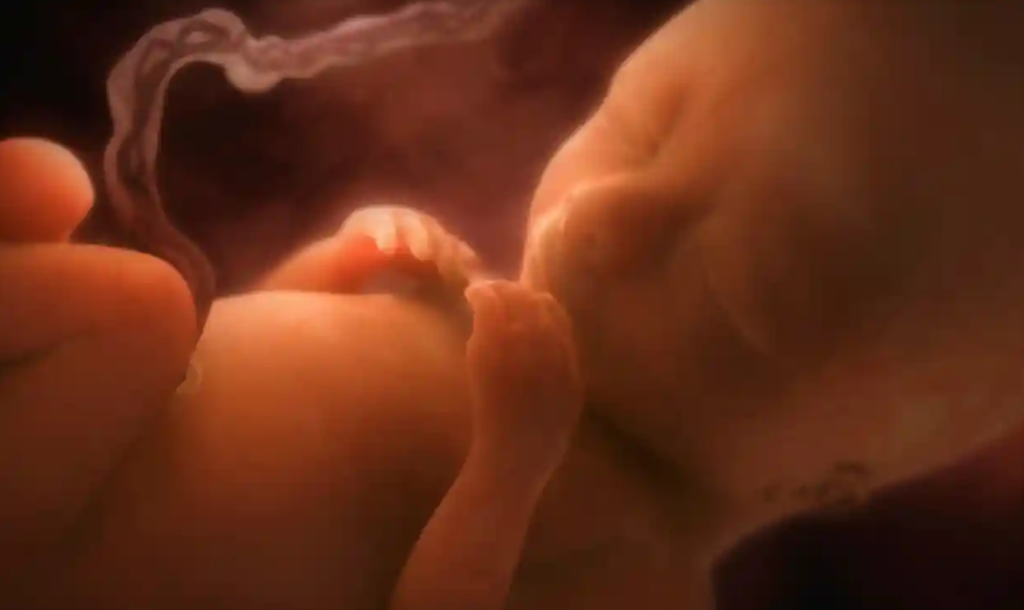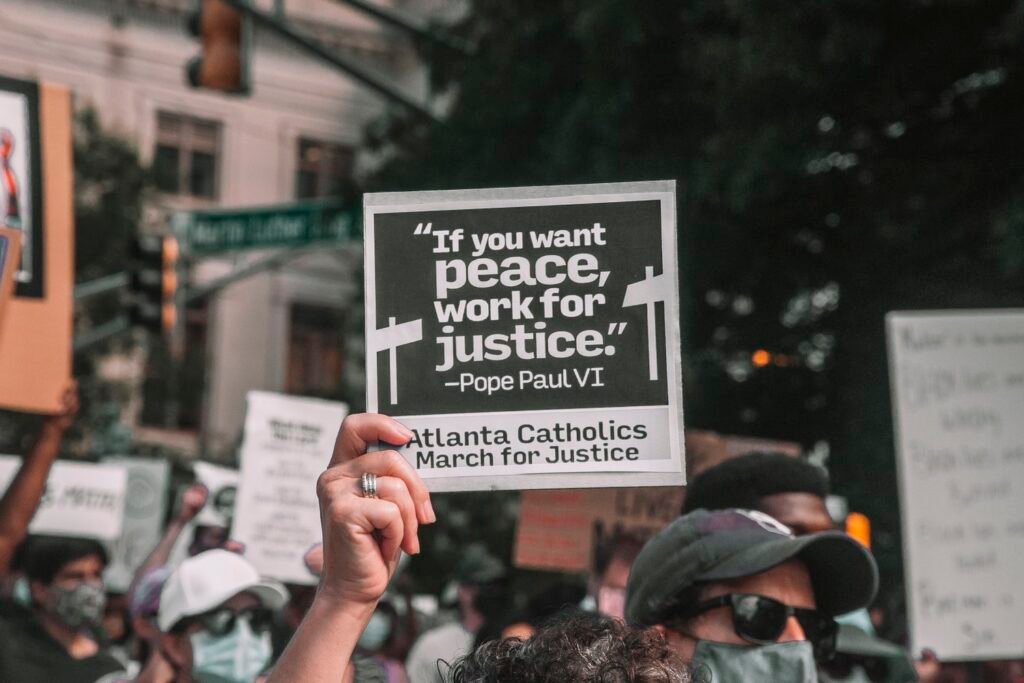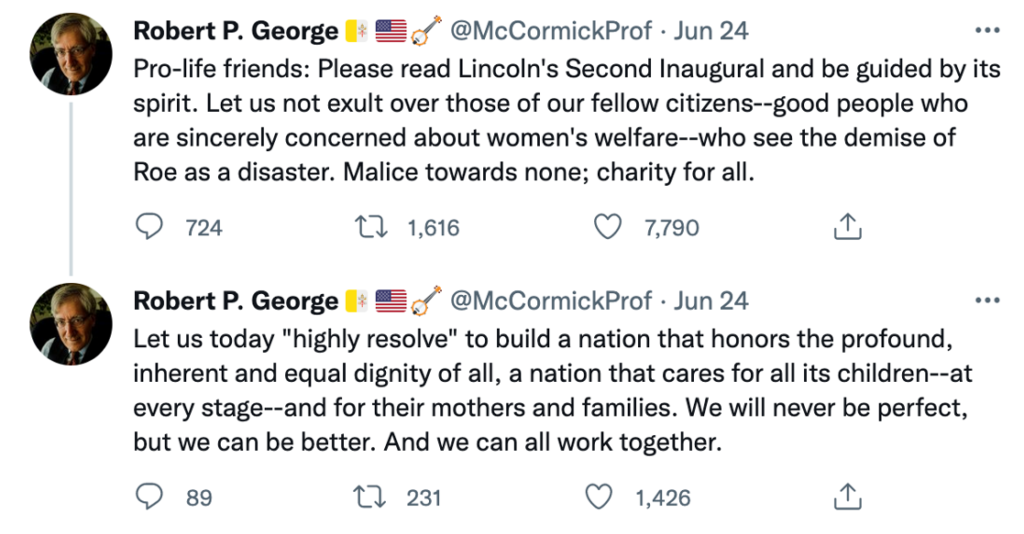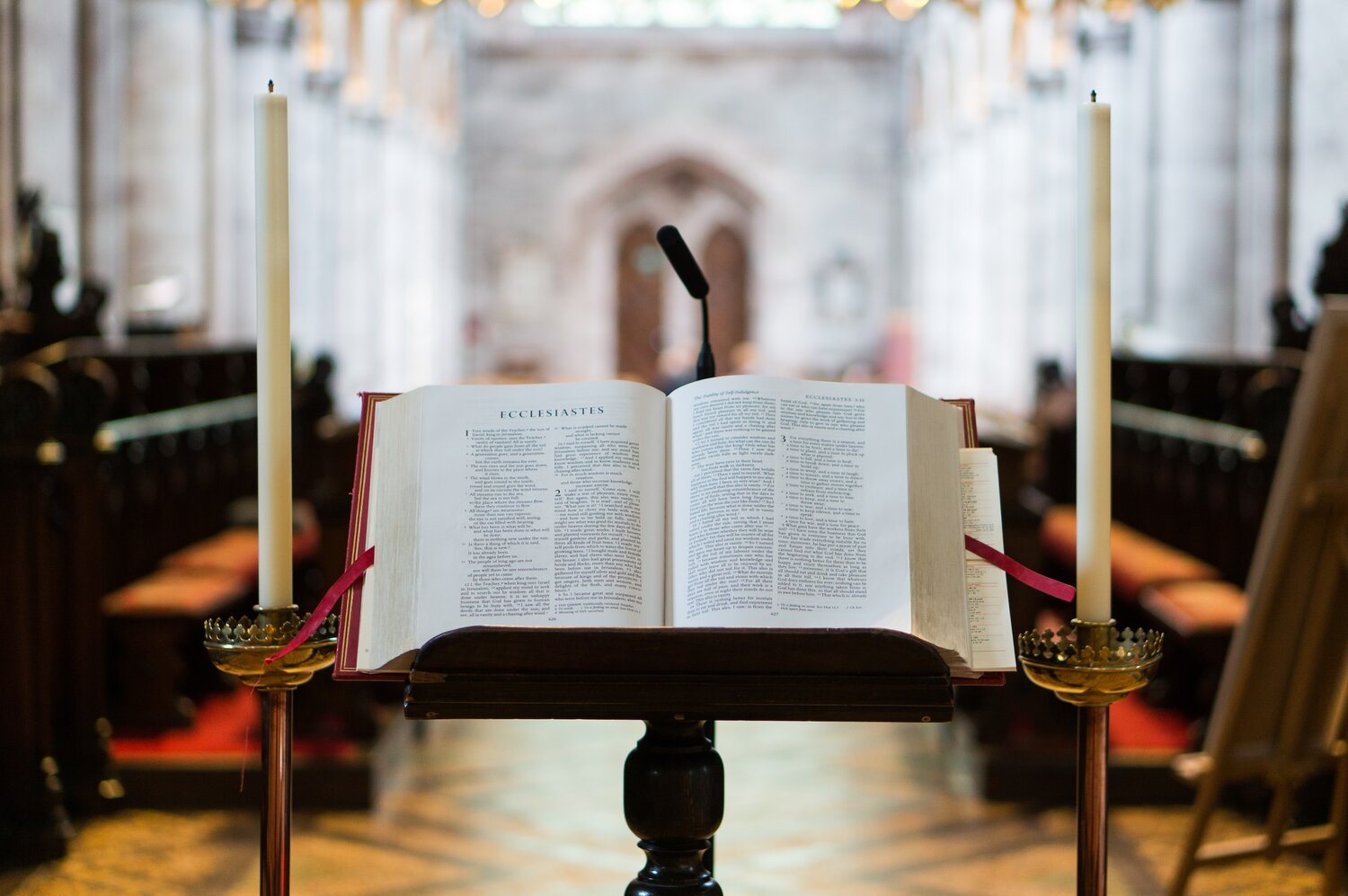The Supreme Court, Justice and the Abortion Debate

The news about the United States Supreme Court’s recent decision to overturn Roe vs Wade, in the highly publicized and contentious Dobbs vs Jackson case, is something I’m sure most of you would already have heard of; perhaps some of you are even familiar with the details at this point. It is a nullification of the landmark Roe vs Wade decision that the Supreme Court issued in 1973, which essentially codified a right to abortion across the United States. Technically, it also overrules a decision from 1992, named Planned Parenthood vs Casey, which essentially concurred with the original Roe decision. Notably, the Dobbs ruling in no way serves as a blanket ban on abortion across the entire nation. It simply rescinds a unanimous national right to abortion, and ‘sends it back to the states’ so to speak, by allowing each state to regulate abortion as they see fit.
This piece of news was reported throughout the usual Western media outlets, as well as media outlets from this country, such as Channel News Asia and the Straits Times. Even Salt & Light dedicated an article to reporting the news. I personally found out about this news on the night of Friday the 24th of June, just a handful of hours after testing positive for COVID over an ART. I ended up spending much of my isolation following the discourse on this bombshell news, seeing the reactions of a wide range of groups and people.

My perspective on this decision is that it is a fantastic development, both from a legal and human rights standpoint. On one hand, it is a huge step towards protecting the fundamental rights of children in the womb – their right to life. On another, it is a long overdue reversal of a horrendous act of judicial activism made almost half a century ago.
Many people (especially those outside the church or Christian circles) will disagree with this, and I can understand why they disagree, or even feel horrified by the Dobbs decision. However, ultimately, I do hold to a pro-life stance, and this informs my agreement and rejoicing at this decision.
Even for us in Singapore, it is worth pondering the meaning of this monumental piece of news and what it entails – especially from a Christian perspective. Here, I offer some of my thoughts that I had to share following this earth-shattering moment for America and even the world. This is not to insist that my viewpoint alone is the right one, or to put down any who may disagree; nor is it to provide a lengthy discourse about all the scientific, political and theological ramifications. The aim is to simply provide some brief thoughts that aim edify the Body of Christ here in Singapore and give you, the reader, some food for thought.
1. We must care for all lives – even when inconvenient or unrecognized
I remember when the horrific killing of George Floyd took place in May 2020 – at the height of the pandemic and the worldwide lockdowns – many people, particularly youngsters, rushed to post a black square to prove their commitment to fighting racism. Quite frankly, it was quite clear to me that many who did this were simply following the bandwagon of that moment – a form of virtue signalling to show others that they ‘cared’ even if they didn’t truly care deep down. And amidst the very real pain and hurt that Black Americans were feeling, a wide array of black squares on Instagram wasn’t really going to solve the problems facing their communities or the broader racial injustice facing America. In a similar vein, there are people who put the Ukraine flag on their social media profiles, sometimes simply as a self-aggrandizing act to display how much they care for justice and innocent lives without actually taking substantive action which could include a sacrifice of some sort.
For Christians, our commitment to justice and upholding the fundamental rights of all human beings must not be based on this kind of glib, self-serving attitude. In fact, Jesus directly called out this kind of attitude, when he confronted the Pharisees for broadcasting their prayers simply for their self-righteous egos rather than to sincerely honor God.
“For Christians, our commitment to justice and upholding the fundamental rights of all human beings must not be based on a glib, self-serving attitude.”
Instead, we should have a yearning to pursue justice for the purpose of honouring God, and fulfilling Jesus’ call to care for the least of these as articulated in. This includes advocating for those who mainstream society overlooks – and I firmly believe that those of the unborn are firmly in that category. In the vast array of vulnerable groups that people like to talk about, I’ve observed that mainstream culture does not mention unborn children much, even though human beings quite literally don’t get more vulnerable and defenseless as they do. Instead, they are largely disregarded as a category of people whose concerns are imaginary. At worse, they can be talked of as ‘parasites’ or just a clump of cells. But Scripture is clear that a child inside the womb is a human being, as passages like Psalm 139 indicate, while scientific developments have increasingly confirmed the humanity of children in the womb.
I don’t believe that unborn children have their welfare directly considered; meanwhile, none of us are able to directly imagine ourselves in their shoes. As President Ronald Reagan once quipped, “I notice that everyone who’s for abortion has already been born”. As people who have been graciously given the gift of life from God, let’s stand up for these unborn children yet to enter the world, and oppose the unjust slaughter of these precious ones.

2. Politics has a practical impact on us – whether we like it or not
Amidst the ensuing debates about the Dobbs decision, one thing cannot be denied: this is something fundamentally political in nature. All the justices on the current Supreme Court, who had to rule on Dobbs, were appointed by a President, whether that be Donald Trump, Barack Obama, George W. Bush, Bill Clinton, or George H.W. Bush. All these Presidents had to be elected by voters in their country to be able to enter the White House. All the justices, upon nomination, had to pass through a Senate confirmation in order be confirmed to the Court. And every Senator who participated in a Supreme Court confirmation hearing, in turn, had to be elected by constituents in their state.
“I believe in Christians engaging in the public square even when it can be difficult and controversial. It shouldn’t be in a way where we wholly attach ourselves to one side of the aisle; however, we as the church should unashamedly and unapologetically reflect Kingdom values to the rest of society, without compromise, and in all its fullness. ”
What all this is supposed to show is how political processes were deeply intertwined with the outcome of this Court decision. And it is not just with regards to abortion, but many other issues that affect our society and human livelihoods. Because of this, I believe in Christians’ engaging with the public square even when it can be difficult and controversial. It shouldn’t be in a way where we wholly attach ourselves to one side of the aisle; however, we as the church should unashamedly and unapologetically reflect Kingdom values to the rest of society, without compromise, and in all its fullness. Whether it is on the sanctity of life, or on other issues, may we hold fast to this attitude. May we heed the words of Rev. Dr. Martin Luther King Jr., who once said “Our lives begin to end the day we become silent about things that matter”. Silence on the issue of protecting innocent life should not be an option for the church – even if it requires our engagement with the public square.

3. Recognise the different victims of an injustice
In a famous speech that President Lyndon B. Johnson once gave to the US Congress, in advocating for voting rights for Black Americans, he said, “It’s not just Negroes, but it’s really all of us, who must overcome the crippling legacy of bigotry and injustice. And we shall overcome”. I believe the broader point of LBJ’s remarks is to show that an injustice to one specific group of people within a society can negatively affect all of society, and not just the direct victims. When looking at the topic of abortion, I believe this idea is relevant.
I have just discussed the tragedy of how the lives of the unborn are undermined by the proliferation of abortion. However, I believe that many women who undergo these abortions are victims, rather than aggressors, in this tragedy of widespread abortions. It is true that there are women who are driven by their own sick, selfish thoughts to have their pregnancy terminated and feel no remorse afterwards. But I am sure that many – in fact, most cases involve young women who are frightened and feel they are cornered into a desperate situation, where they eventually make that terrible decision out of that sense of desperation. I believe that it is very much worth empathizing with those, and I hope that the pro-life movement in America – which has already done a great deal to care for vulnerable women for decades, mind you – will focus more on helping and uplifting these women rather than trying to punish them for their abortions.
“I believe that many women who undergo these abortions are victims, rather than aggressors, in this tragedy of widespread abortions.”
It is horrible how often in the abortion debate, the rights of women and unborn children are pitted against each other as if they contradict, when in reality abortion directly harms both. It is eerily reminiscent of how, during the time slavery was legal in America, the rights of Black slaves and White citizens were dishonestly pitted against one another, as a way to continue justifying the practice of owning Blacks as slaves because of their skin colour. President John F. Kennedy’s words that ‘the rights of every man are diminished when the rights of one man are threatened’ are valuable in navigating this dynamic. When the life of unborn children are diminished, this can, and will lead to the value of all human life being threatened; and when unjust violence is allowed and even encouraged against these unborn children, the welfare of women will only continue to suffer more.

4. Make sure to remain charitable amidst differences in viewpoint
I may have made very clear what my position is regarding abortion, and this Dobbs decision; however, at the same time, I fully recognize that many people will have a different view on this, which I fully respect. It is even more important that those in America – especially the many pro-life Christians – are able to respect the differing perspective of others, and understand where they come from.
I came across a very thoughtful tweet by a pro-life, conservative-leaning intellectual, who urged fellow pro-lifers to follow the example set by Abraham Lincoln as articulated in his second inaugural address. In that majestic speech, given towards the end of a brutal American Civil War Lincoln urged his listeners to act ‘with malice towards none, with charity towards all’ and to strive to ‘bind up the nation’s wounds’. In a time when the imminent defeat of the Confederacy was looming, it would have been easy for Lincoln to pour further cold water on the Union’s enemies and gin up further lust to enact vengeance on them. Yet, he instead opted to show them grace.
It’s a reminder for this season that, even as a victory for something many traditional Christian believe in has been achieved, it shouldn’t be leveraged to mock people on the other side of the debate, as tempting as it can be. One article from the Gospel Coalition (which, funnily enough, was criticized by some conservative Christians) cautioned against the church using this decision to ‘beat its chest in celebration of a victory in the culture war’ even while welcoming this decision. I think it’s a wise piece of advice that highlights how to exemplify Christ-likeness in advocating righteousness while doing so with grace and love.

5. Figuring out solutions isn’t easy – but let us strive for them nonetheless
In John F. Kennedy’s unforgettable inaugural address, following a string of proposals on how to build a better world, he went on to state “All this will not be finished in the first one hundred days. Nor will it be finished in the first one thousand days, nor in the life of this administration, nor even perhaps in our lifetime on this planet. But let us begin”.
There are many issues in this world, and in our society, that are so complex and far-reaching that we can continue working on them our whole lives and still not be able to properly solve them. However, as that quote indicates, it should not stop those who love peace, freedom and justice from at least beginning the work of tackling the big problems at hand; and not only that, but to do so as a deliberate way of manifesting God’s Kingdom in this fallen world.
“Complex problems should not stop those who love peace, freedom and justice from at least beginning the work of tackling the big problems at hand; and not only that, but to do so as a deliberate way of manifesting God’s Kingdom in this fallen world.”
In the case of abortion – not just in the United States, but in many places around the world – all the problems surrounding this phenomenon are very large-scale and far beyond quick fixes. From the ubiquitous nature of hook-up culture and the legacy of the sexual revolution to the chronic poverty of many young pregnant women, along with the increasing costs of raising a family in the modern world, there are many factors in driving abortions.
We won’t be able to solve these problems entirely, by any means. But, driven by the compassion that could only come from our Lord Jesus Christ, and making best use of our gifts and knowledge that God has given us, we can work towards helping people in need who face such problems, alongside the many other pieces of brokenness and injustice which wreck people’s lives. In doing so, we will truly make this world a better place to live in, and even give a taste of the Kingdom which is yet to come. And that, ultimately, is the most important takeaway I can offer following this momentous development.

Written by Gerald Koh, Marketplace Mentorship cohort of 2022


